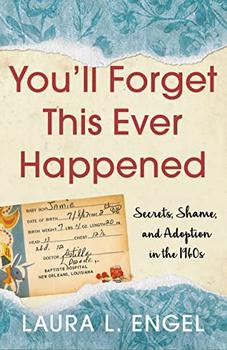Book Club Discussion Questions
Want to participate in our book club? Join BookBrowse and get free books to discuss!
Please be aware that this discussion guide will contain spoilers!
- Laura's parents and grandmother had very strong reactions to news of her pregnancy. Which do you feel were typical for that time and place, and which, do you think, were not? In what ways do you think parents today would react similarly, and in what ways differently?
- The author notes a riot in a nearby park, with the Black community demanding access to the whites-only beach. Had you heard about this protest, or others of the era? How do you feel protests today are different from those in the 1960s, and how do you think they're similar?
- Did anything surprise you about the era or about Laura's experience? Did you learn anything new?
- How do you think the story would be different if told from Laura's mother's point of view?
- How do you feel you would have reacted to an unplanned pregnancy as an unwed teenage girl? Or as the boy who learns the girl you dated is pregnant?
- What do you think about Clay's decision not to marry Laura? Do you think he had any regrets? Was he as callous as he appeared? What could he have done differently?
- Laura's father tells her, "If you care about this child, you need to let it go." Do you agree? Do you believe giving up her baby was the right decision under the circumstances?
- When Laura fills out paperwork at the maternity home, she's given the option of using an alias. What purpose do you think this served? She refuses to change her name; why do you suppose she draws the line where she does?
- As a young woman Laura harbors a lot of resentment toward her parents, but especially toward her mother. Why do you suppose she directs her anger primarily in that direction?
- What parts of the book struck a particular chord with you? Are there any sections that moved you more than others? Are there any that made you especially angry?
- Laura meets many unwed mothers like herself at the maternity home. Which of the girls' stories moved you the most? In what ways were their situations similar, and in which ways different?
- Laura's parents insist on pulling her out of the maternity home early, against the doctors' advice. Why do you think they did this?
- After Nick leaves her, Laura's parents encourage her to move back home. She considers it, but never acts on the offer. Why do you think this is? If you were in her position (three young children and no money coming in) what do you think you'd have done? How would her circumstances be different today?
- In contemplating her past, Laura states that "life does have a way of softening just about anything that happened in your past." Do you think this is true? Why or why not? Are there any wounds that time doesn't soften?
- Laura waits until she's a grandmother to tell the children she raised that she had a son before she was married. Why do you suppose she waited so long? Were you surprised by the children's reactions?
- Richard finds Laura via a match in Ancestry.com. Do you think the easy availability of genetic testing is a positive or a negative? Have you used this company or one similar, and if so, did you learn anything unexpected about genetic makeup?
- Are you surprised Richard reached out to his birth mother? What would you have done in his shoes?
- Were there gaps in the story you wish the author had elaborated on? What questions would you ask her if you could?
A Note About the Epilogue
After an almost fairy tale ending, this book was in the publishers' hands when an unspeakable tragedy happened. Losing her son a second time decimated Laura. She considered not publishing. After six months of terrible grief, she decided to move forward with publishing, and added an epilogue. The epilogue, while tying up the loose ends as well as telling the true ending, is very brief because of the crippling fresh grief Laura was experiencing.
Unless otherwise stated, this discussion guide is reprinted with the permission of She Writes Press. Any page references refer to a USA edition of the book, usually the trade paperback version, and may vary in other editions.
